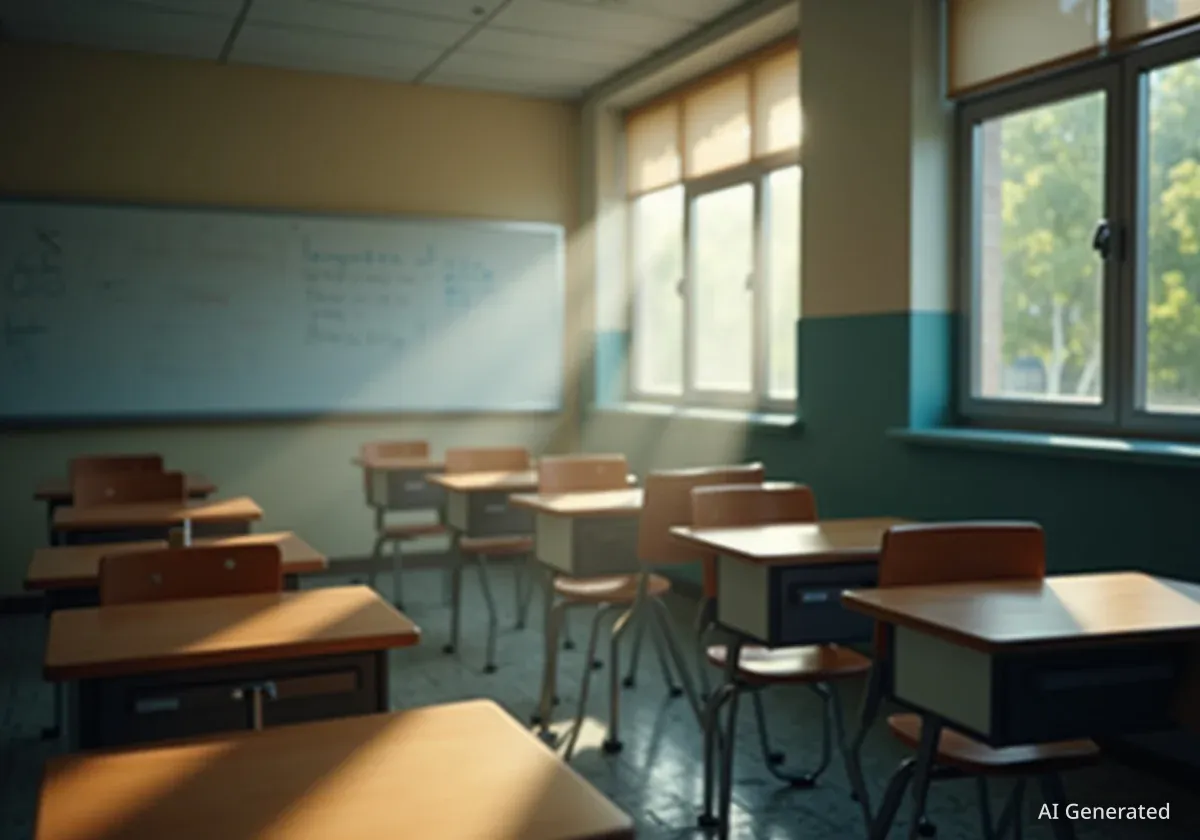A high school teacher in Peabody, Massachusetts, who was suspended earlier this month will not be returning to their position, school officials confirmed. The suspension followed an investigation into social media comments made after the death of conservative activist Charlie Kirk.
Peabody Public Schools Superintendent Josh Vadala announced that two teachers from Peabody Veterans Memorial High School were initially placed on administrative leave for potential violations of district policies. The investigation centered on public comments that raised concerns about professional conduct.
Key Takeaways
- A Peabody high school teacher, previously on leave, will not return to the classroom.
- The action follows an investigation into social media posts concerning the death of activist Charlie Kirk.
- Superintendent Josh Vadala cited "potential violations of district policies and procedures."
- The incident is part of a series of disciplinary actions against public employees in Massachusetts for similar online comments.
Details of the Administrative Action
The controversy began after public comments attributed to the teacher appeared on social media. In a formal statement, Superintendent Josh Vadala addressed the situation, confirming the initial administrative action against two educators. He stated that the district had initiated a review of their conduct.
"Officials had placed two teachers at Peabody Veterans Memorial High School on leave earlier this month for potential violations of district policies and procedures," Vadala's statement noted. He specified that the inquiry included, but was not limited to, examining "inappropriate social media posts following the death of Charlie Kirk."
While one teacher's status has been resolved with their departure, the district has not released information regarding the second teacher who was placed on leave. The name of the teacher who will not be returning has not been officially released by the school system, which is standard practice in personnel matters.
Understanding School District Policies
Most public school districts maintain specific policies regarding employee conduct, both on and off duty. These policies often extend to social media use, outlining expectations for professionalism and setting boundaries to ensure that personal expression does not disrupt the educational environment or undermine public trust in the school system.
The Broader Context of Public Employee Speech
This incident in Peabody is not isolated. It reflects a growing trend where public employees face professional consequences for their online speech, particularly when it involves politically charged topics. Similar situations have recently occurred in other Massachusetts communities.
Related Incidents in Massachusetts
In New Bedford, a firefighter was placed on administrative leave for comments made online related to the same event. Likewise, a teacher in Holden was suspended for social media activity connected to Charlie Kirk's death. These cases highlight the complex balance between a public employee's First Amendment rights and their professional obligations.
The Pickering Standard
The U.S. Supreme Court case Pickering v. Board of Education (1968) established a key legal test. It balances an employee's right to speak on matters of public concern against the government's interest (as an employer) in promoting the efficiency of its public services. Courts often weigh whether the speech disrupts the workplace, impairs discipline, or harms working relationships.
Legal experts note that while public employees do not forfeit their constitutional rights, those rights can be limited. Speech that is deemed to interfere with their job performance or the function of their agency can be subject to disciplinary action. For educators, the standard is often stricter due to their role as mentors and their influence over students.
Navigating Professionalism in a Digital Age
The rise of social media has created new challenges for public institutions, including school districts. The line between private opinion and professional conduct has become increasingly blurred, forcing districts to adapt and enforce policies that address online behavior.
Educational organizations often provide guidance to their members on this topic. They typically advise teachers to:
- Maintain separate personal and professional social media accounts.
- Avoid posting content that could be perceived as unprofessional or biased.
- Refrain from engaging in online arguments or posting inflammatory remarks.
- Understand that even private posts can become public and reflect on their school and profession.
The core issue for school administrators is maintaining a safe and inclusive learning environment. When a teacher's public statements are seen as celebrating violence or expressing extreme views, districts may determine that their ability to be an effective and impartial educator has been compromised. This is often the basis for administrative action, as it pertains directly to the employee's fitness for their role.
"The alleged violations were including but not limited to inappropriate social media posts following the death of Charlie Kirk," Superintendent Vadala previously stated, emphasizing the direct link between the online activity and the district's investigation.
The outcome in Peabody serves as a reminder of the significant professional risks associated with online speech for those in public service roles. As political discourse becomes more polarized, school districts and other public agencies are likely to continue facing similar situations, navigating the delicate intersection of employee rights, professional standards, and public trust.





